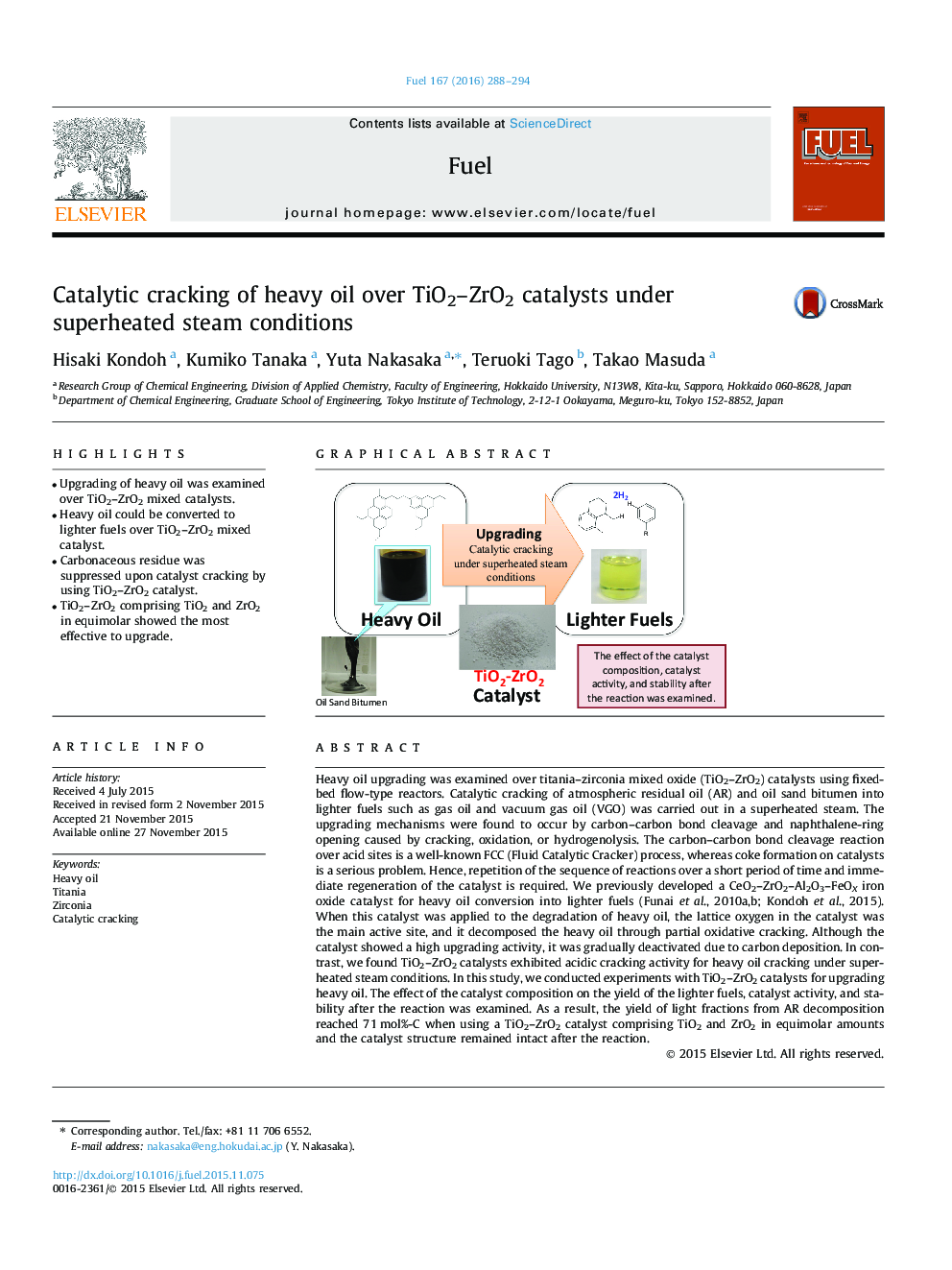| کد مقاله | کد نشریه | سال انتشار | مقاله انگلیسی | نسخه تمام متن |
|---|---|---|---|---|
| 205355 | 461105 | 2016 | 7 صفحه PDF | دانلود رایگان |

• Upgrading of heavy oil was examined over TiO2–ZrO2 mixed catalysts.
• Heavy oil could be converted to lighter fuels over TiO2–ZrO2 mixed catalyst.
• Carbonaceous residue was suppressed upon catalyst cracking by using TiO2–ZrO2 catalyst.
• TiO2–ZrO2 comprising TiO2 and ZrO2 in equimolar showed the most effective to upgrade.
Heavy oil upgrading was examined over titania–zirconia mixed oxide (TiO2–ZrO2) catalysts using fixed-bed flow-type reactors. Catalytic cracking of atmospheric residual oil (AR) and oil sand bitumen into lighter fuels such as gas oil and vacuum gas oil (VGO) was carried out in a superheated steam. The upgrading mechanisms were found to occur by carbon–carbon bond cleavage and naphthalene-ring opening caused by cracking, oxidation, or hydrogenolysis. The carbon–carbon bond cleavage reaction over acid sites is a well-known FCC (Fluid Catalytic Cracker) process, whereas coke formation on catalysts is a serious problem. Hence, repetition of the sequence of reactions over a short period of time and immediate regeneration of the catalyst is required. We previously developed a CeO2–ZrO2–Al2O3–FeOX iron oxide catalyst for heavy oil conversion into lighter fuels (Funai et al., 2010a,b; Kondoh et al., 2015). When this catalyst was applied to the degradation of heavy oil, the lattice oxygen in the catalyst was the main active site, and it decomposed the heavy oil through partial oxidative cracking. Although the catalyst showed a high upgrading activity, it was gradually deactivated due to carbon deposition. In contrast, we found TiO2–ZrO2 catalysts exhibited acidic cracking activity for heavy oil cracking under superheated steam conditions. In this study, we conducted experiments with TiO2–ZrO2 catalysts for upgrading heavy oil. The effect of the catalyst composition on the yield of the lighter fuels, catalyst activity, and stability after the reaction was examined. As a result, the yield of light fractions from AR decomposition reached 71 mol%-C when using a TiO2–ZrO2 catalyst comprising TiO2 and ZrO2 in equimolar amounts and the catalyst structure remained intact after the reaction.
Figure optionsDownload as PowerPoint slide
Journal: Fuel - Volume 167, 1 March 2016, Pages 288–294